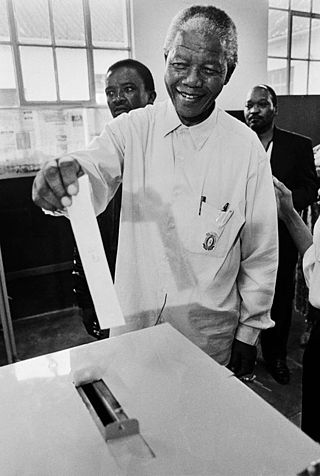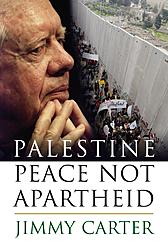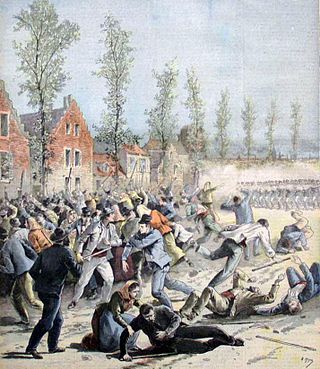Related Research Articles

Democracy is a system of government in which state power is vested in the people or the general population of a state. According to the United Nations, democracy "provides an environment that respects human rights and fundamental freedoms, and in which the freely expressed will of people is exercised."

James Earl Carter Jr. is an American politician and humanitarian who served as the 39th president of the United States from 1977 to 1981. A member of the Democratic Party, he served as the 76th governor of Georgia from 1971 to 1975, and as a Georgia state senator from 1963 to 1967. He is the oldest living former U.S. president and the longest-lived president in U.S. history.
Politics is the set of activities that are associated with making decisions in groups, or other forms of power relations among individuals, such as the distribution of resources or status. The branch of social science that studies politics and government is referred to as political science.
Representative democracy, also known as indirect democracy, is a type of democracy where elected delegates represent a group of people, in contrast to direct democracy. Nearly all modern Western-style democracies function as some type of representative democracy: for example, the United Kingdom, Germany, France, and the United States. Representative democracy places power in the hands of representatives who are elected by the people. Political parties often become central to this form of democracy if electoral systems require or encourage voters to vote for political parties or for candidates associated with political parties. Some political theorists have described representative democracy as polyarchy.

Helena Bonham Carter is an English actress. Known for her roles in blockbusters and independent films, particularly period dramas, she has received various awards and nominations, including a British Academy Film Award and an International Emmy Award, in addition to nominations for two Academy Awards, four British Academy Television Awards, five Primetime Emmy Awards, and nine Golden Globe Awards.

The Bush Doctrine refers to multiple interrelated foreign policy principles of the 43rd President of the United States, George W. Bush. These principles include unilateralism, preemptive war, and regime change.

Direct democracy or pure democracy is a form of democracy in which the electorate decides on policy initiatives without elected representatives as proxies. This differs from the majority of currently established democracies, which are representative democracies. The theory and practice of direct democracy and participation as its common characteristic was the core of work of many theorists, philosophers, politicians, and social critics, among whom the most important are Jean Jacques Rousseau, John Stuart Mill, and G.D.H. Cole.
Deliberative democracy or discursive democracy is a form of democracy in which deliberation is central to decision-making. Deliberative democracy seeks quality over quantity by limiting decision-makers to a smaller but more representative sample of the population that is given the time and resources to focus on one issue.

Carol Lani Guinier was an American educator, legal scholar, and civil rights theorist. She was the Bennett Boskey Professor of Law at Harvard Law School, and the first woman of color appointed to a tenured professorship there. Before coming to Harvard in 1998, Guinier taught at the University of Pennsylvania Law School for ten years. Her scholarship covered the professional responsibilities of public lawyers, the relationship between democracy and the law, the role of race and gender in the political process, college admissions, and affirmative action. In 1993 President Bill Clinton nominated Guinier to be United States Assistant Attorney General for Civil Rights, but withdrew the nomination.
Participatory democracy, participant democracy or participative democracy is a form of government in which citizens participate individually and directly in political decisions and policies that affect their lives, rather than through elected representatives. Elements of direct and representative democracy are combined in this model.

Stephen Lisle Carter is an American legal scholar who serves as the William Nelson Cromwell Professor of Law at Yale Law School. He writes on legal and social issues.

Lynda Jean Cordova Carter is an American actress, singer, and beauty pageant titleholder, best known as the star of the live-action television series Wonder Woman, in the role of Diana Prince / Wonder Woman, based on the DC comic book fictional superhero character of the same name. As a pageant contestant, Carter was crowned Miss World USA 1972 and finished in the top 15 at the Miss World 1972 pageant. She achieved fame playing Wonder Woman in a series that aired on ABC and later on CBS from 1975 to 1979.

Nickolas Gene Carter is an American singer and a member of the vocal group Backstreet Boys. As of 2015, Carter has released three solo albums, Now or Never, I'm Taking Off and All American, during breaks between Backstreet Boys schedules, and a collaboration with Jordan Knight titled Nick & Knight. He has made occasional television appearances and starred in his own reality shows, House of Carters and I (Heart) Nick Carter.

Monica Frassoni is an Italian politician who served as a Member of the European Parliament from 1999 to 2009 and as co-chair of the European Green Party from 2009 to 2019. In 2018, she was elected at the local Council of Ixelles in the Brussels Region, representing the Ecolo party.

The Network, whose complete name was Movement for Democracy – The Network, was a political party in Italy led by Leoluca Orlando.

Palestine: Peace Not Apartheid is a book written by 39th President of the United States Jimmy Carter. It was published by Simon & Schuster in November 2006.
April Carter was a British peace activist. She was a political lecturer at the universities of Lancaster, Somerville College, Oxford and Queensland, and was a Fellow at the Stockholm International Peace Research Institute from 1985 to 1987. She is currently an Honorary Research Fellow of the Centre for Peace and Reconciliation Studies, Coventry University, and a 'senior editor' on the international editorial board for the International Encyclopedia of Peace to be published by Oxford University Press.
Environmental politics designate both the politics about the environment and an academic field of study focused on three core components:

Direct action is a term for economic and political behavior in which participants use agency—for example economic or physical power—to achieve their goals. The aim of direct action is to either obstruct a certain practice or to solve perceived problems.

Agent Carter is a 2013 American direct-to-video short film featuring the Marvel Comics character Peggy Carter, produced by Marvel Studios and distributed by Walt Disney Studios Home Entertainment. It is the fourth Marvel One-Shot short film set in the Marvel Cinematic Universe (MCU), sharing continuity with the films of the franchise and taking place after Captain America: The First Avenger (2011). The film is directed by Louis D'Esposito from a screenplay by Eric Pearson, and stars Hayley Atwell as Peggy Carter, along with Bradley Whitford and Dominic Cooper. In Agent Carter, Peggy Carter sets out on a solo mission to acquire the mysterious Zodiac while facing sexism post-World War II at the SSR, a precursor to S.H.I.E.L.D.
References
- ↑ Direct Action and Democracy Today Polity Press, ISBN 0-7456-2935-0 (Hardback)
- ↑ A review by Brian Martin published in Journal of Peace Research , volume 43, number 4, July 2006, p. 492.